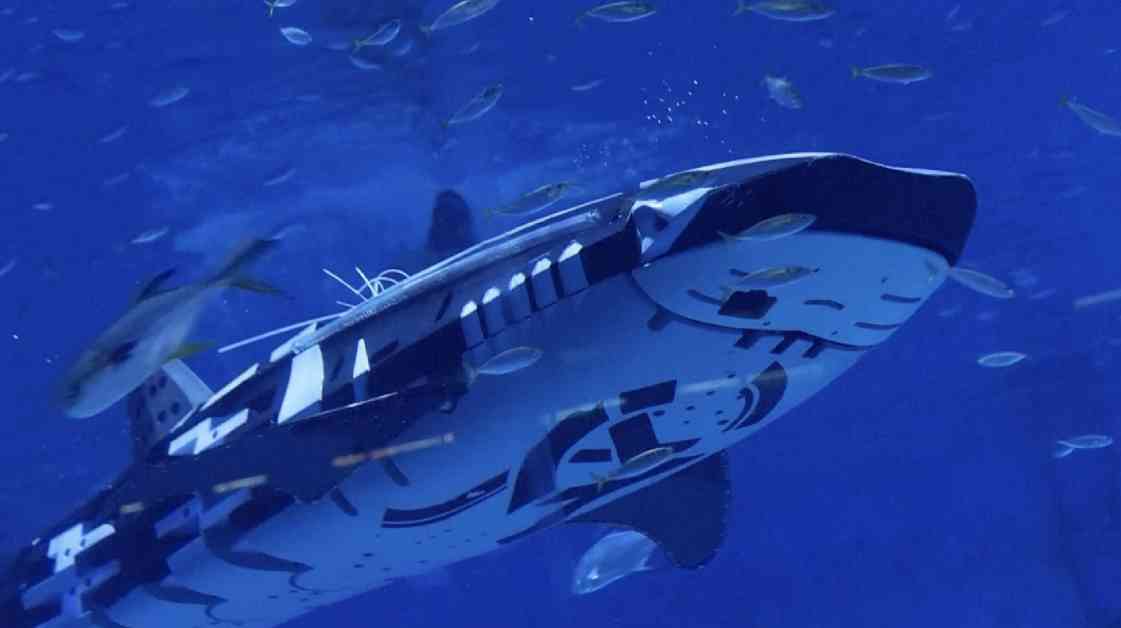A company in Shenyang is making waves in the marine industry by creating the world’s first intelligent robotic whale shark. This impressive creation, developed by the Shenyang Aerospace Xinguang Group, is a nearly five-meter-long, 350-kilogram marvel that can mimic the movements of a real whale shark with incredible accuracy.
According to Gao Chao, the designer at Shenyang Aerospace Xinguang Group, the robotic whale shark has seven actuated joints that require advanced technology in computing, communication, and sensing. This bionic fish is equipped with various features such as wireless remote control, programmed swimming, and multi-joint bionic propulsion, allowing it to swim at speeds of up to 0.7 meters per second and dive to depths of 20 meters.
With optical cameras, sensors, sonar, and positioning systems, this robotic whale shark can be used for a variety of tasks including water quality monitoring, underwater mapping, and specialized missions. Fang Xuelin, assistant director of the Underwater Propulsion Technology Research Office, explains that the robot must process data from multiple sensors to navigate obstacles and understand its surroundings.
Unlike traditional propeller-driven underwater robots, the bionic whale shark’s design prevents water pollution and reduces harm to marine life. This innovative technology has inspired the company to expand its product line to include other marine creatures like Yangtze finless porpoises, killer whales, and dolphins.
As we continue to explore the depths of the ocean, underwater robots are becoming essential tools for research and development. By combining bionic technology with intelligent systems, companies like Shenyang Aerospace Xinguang Group are leading the way in underwater robotics. With advancements in materials, control systems, and artificial intelligence, bionic robots have the potential to revolutionize marine operations and scientific exploration.
The development of intelligent robotic marine creatures not only opens up new possibilities for underwater exploration but also highlights the importance of sustainable and eco-friendly technology in marine industries. By investing in innovative solutions like the robotic whale shark, companies can minimize their impact on marine ecosystems while maximizing the efficiency and effectiveness of their operations. The future of underwater robotics is bright, with endless possibilities for technological advancements and discoveries in the depths of the ocean.












